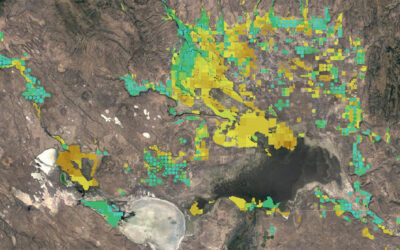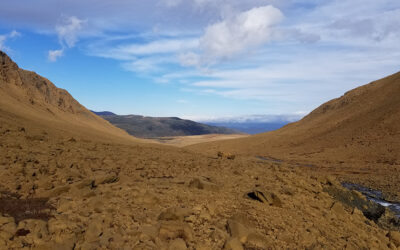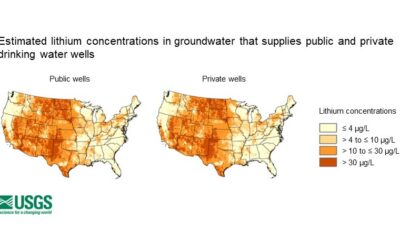DRI scientists Joe McConnell and Nathan Chellman are co-authors on a new study that sheds light on a historical mystery that has plagued historians and scientists alike for nearly two centuries. Using Arctic ice core records, the team identified the volcano responsible for an enormous eruption in 1831 that caused global cooling of around 1°C, leading to crop failures and famines around the world.
Regional, Racial, and Economic Disparities in Cancer Risk from Air Pollution Exposure Persist, But Improving, New Research Suggests
Researchers from DRI and UNR teamed up for this new study, published October in Environmental Science & Technology. Using sociodemographic data from the U.S. Census Bureau and public health and air pollution information from the EPA between 2011 and 2019, the study identified higher estimated cancer risk tied to air toxics in urban communities, those with lower incomes, and those with higher proportions of racial minorities.
Groundwater Use Can Be Accurately Monitored With Satellites Using OpenET, New Study Finds
DRI scientists compared data from groundwater pumping meters with OpenET estimates in irrigated land to advance understanding of groundwater use. The new study demonstrated that OpenET can be used to accurately estimate the amount of groundwater used for crop irrigation at the level of individual fields.
DRI Scientists Create Guidance to Help Emergency Managers Prepare for Weather Hazards of the Future
DRI scientists partnered with the U.S. Geological Survey to produce a guidance document for incorporating publicly available data on historical and projected extreme weather events to aid with emergency planning exercises. The report, funded by the California Department of Water Resources, is available on DRI’s website.
Groundwater is Key to Protecting Global Ecosystems
New research identifies ecosystems around the world that could be threatened by declining groundwater levels. The research, published July 17 in Nature, is the first time that groundwater-dependent ecosystems have been mapped on a global scale. Led by scientists from The Nature Conservancy and DRI, the global effort brought researchers together from universities, non-profit organizations, and institutions from seven countries.
Mars Likely Had Cold and Icy Past, New Study Finds
A new study finds evidence to support that Mars had a cold and icy past by identifying similarities between soils found on Mars and those of Canada’s Newfoundland, a cold subarctic climate. The study, published July 7th in Communications Earth and Environment, looked for soils on Earth with comparable materials to Mars’ Gale Crater.
River ‘Plastisphere’ Serves as Home to Ecosystem-Draining Organisms
New research explores the microbial communities that live on plastic waste and how they impact the 2nd most biodiverse river in the world. DRI researchers Monica Arienzo and Rachel Kozloski are co-authors on this new study that examines the ecological impacts of plastic waste in Cambodia’s Mekong River.
Western Agricultural Communities Need Water Conservation Strategies to Adapt to Future Shortages
Relying on water storage won’t be enough to make up for declines in future water availability under a changing climate, new study shows. Beatrice Gordon, lead author of the study and sociohydrologist and postdoctoral researcher at DRI, says the research is needed to inform water management at the local level, where most decisions are made.
New Study Estimates Lithium in Groundwater That Can Be Used for Drinking Water
DRI researchers Monica Arienzo and Daniel Saftner are coauthors on a new study led by the USGS that examines lithium levels in groundwater aquifers used to supply drinking water across the U.S. The new estimates can help health researchers determine potential connections between lithium exposure and human health outcomes.
Rising Temperatures Will Significantly Reduce Streamflow in the Upper Colorado River Basin As Groundwater Levels Fall, New Research Shows
Climate change will dramatically impact streamflow and its contributions to the Colorado River by increasing forest water use and reducing groundwater levels, new study finds.









